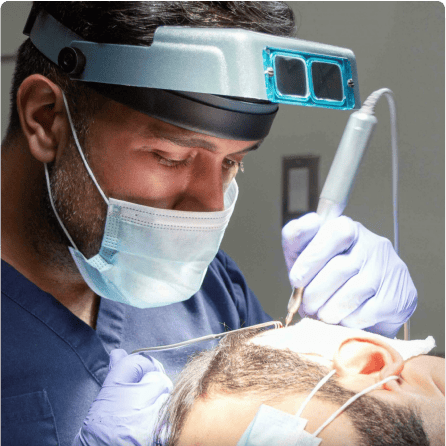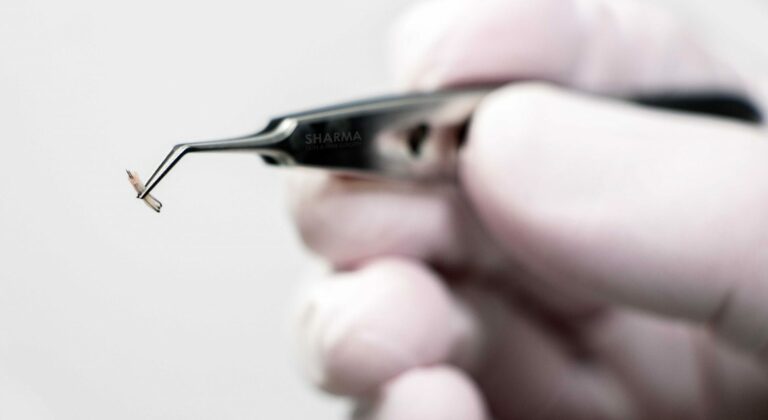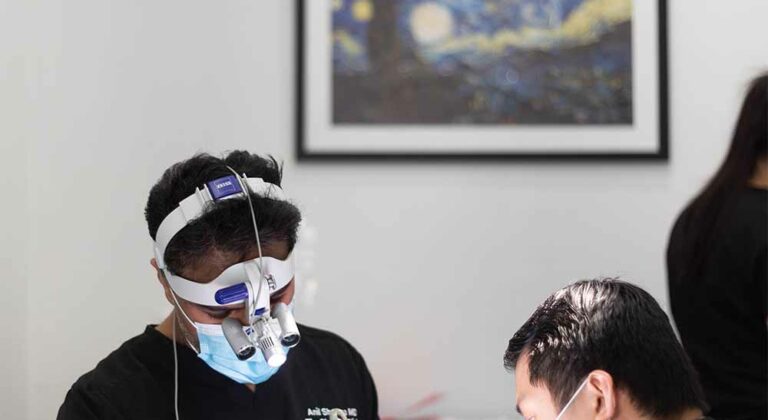Safety is a top priority when considering any cosmetic procedure, and hair transplants are no exception. For those looking to address hair loss, understanding the risks and benefits is essential to making an informed decision. Thankfully, hair transplants are widely considered one of the safest types of cosmetic surgery available today. However, as with any medical procedure, there are potential risks involved, and understanding these can help ensure a smooth and successful outcome.
Many transplant complications are avoidable when the right techniques are used and proper care is followed. In this article, we’ll explore the factors influencing hair transplant safety and offer insights into what makes this procedure reliable.
Factors influencing hair transplant safety
The safety of a hair transplant depends on several key factors:
- The skill and experience of the surgeon: Opt for a surgeon with a proven track record of performing similar procedures and a deep understanding of the latest surgical techniques and technologies. A specialized surgeon possesses the in-depth knowledge and honed skills necessary to address your unique needs and minimize potential complications.
- The clinic’s accreditation and standards: Hair transplant clinics should operate in line with strict medical guidelines, be accredited by relevant medical boards, and ensure strict hygiene protocols are followed to minimize the risk of complications. For instance, clinics in popular medical tourism countries like Turkey may not always adhere to the same stringent standards as those in Western countries. Check out our article on the risks of hair transplants in Turkey.
- Patient health: The transplant patient’s overall health also plays a crucial role in determining whether a hair transplant is safe. Pre-existing conditions, such as diabetes, heart disease, or autoimmune disorders, can impact the procedure’s safety and potential complications. Factors like blood pressure, blood sugar levels, and immune system function should also be carefully considered. Open and honest communication with the surgeon and clinic is crucial to discuss any concerns, review medical history, and make informed decisions about the procedure.
- Adherence to post-operative care: Surgeons provide detailed recovery instructions to minimize the risk of infection or complications, and patients must follow these closely for the best possible outcome.
At the Sharma Clinic, patients benefit from the expertise of Dr. Sharma, who brings years of specialized training and experience in cosmetic medicine. Dr. Sharma has trained in leading medical hubs in Milan, Paris, and London, mastering the latest techniques in cosmetic and hair restoration surgery. Our commitment to excellence means you can trust us to deliver safe, effective, and personalized treatments that meet the highest medical standards.
Safety considerations throughout the transplant procedure
While hair transplants are generally safe, ensuring safety at every stage of the procedure is crucial.
Pre-procedure
Before the surgery, a thorough evaluation is performed to determine the patient’s suitability for the procedure. This includes assessing the extent of hair loss, the quality of donor hair, and the patient’s overall health. Only a qualified and experienced surgeon should conduct this evaluation.
Comprehensive preoperative assessments and medical tests are standard practice to rule out any underlying health conditions that might pose a risk during surgery.
During procedure
During the surgery itself, safety remains a top priority. Local anesthesia is typically used to numb the area, ensuring patients remain comfortable throughout the procedure. With modern anesthesia techniques, any discomfort is minimal.
Infection control is also paramount. Clinics must maintain sterile environments to reduce the risk of infection, and monitoring the patient’s vitals throughout the procedure helps prevent any complications. Emergency protocols are in place in case any unexpected issues arise, ensuring the highest level of safety.
Post-procedure
Surgeons provide detailed instructions for post-operative care, including how to clean the scalp and protect the transplanted area. Recovery time varies, but following these instructions can significantly reduce the risk of complications such as infection or excessive swelling. While these side effects are typically mild, in rare cases, complications such as scarring or unnatural hair growth patterns can occur.
Most of these risks, however, can be minimized by choosing a skilled surgeon and following their post-operative guidelines closely. Regular follow-up appointments allow the surgeon to monitor progress and address any concerns early, further improving the chances of long-term success.
Hair Transplant Recovery & Care InstructionsThe Sharma Clinic advantage
With a reputation for excellence and a focus on patient safety, we use advanced techniques and personalized care to minimize risks and deliver natural, lasting results. Most complications are preventable when the right surgeon and clinic are chosen, and our team is dedicated to ensuring every patient receives the highest standard of care.
If you’re considering a hair transplant, book a consultation with us today to start your journey toward restoring your confidence safely and effectively.
Talk to a Hair Transplant Expert
Are you looking for the most effective treatment plan to reverse the effects of hair loss? Dr. Sharma has a long-lasting commitment to offering the best services in the industry. Not only is he experienced with hair loss treatment, but he is passionate about helping each patient receive excellent results.

Share this:
Medically reviewed by
Updated on
Have a question?
Find out how we can help you look feel your absolute best
Contact us 780-476-7970


